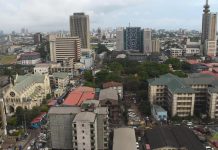Africa-Press – Gambia. A coalition of thirteen Gambian civil society organizations has raised eyebrows over the slow pace and uneven implementation of Security Sector Reforms (SSR) nearly a decade after the 2016 democratic transition.
In a position paper submitted to Government, National Assembly, security agencies, and international partners, the group called for urgent, measurable reforms to restore public trust and strengthen the country’s democratic institutions.
The coalition, which includes Activista The Gambia, the Center for Budget and Macroeconomic Transparency (CBMT Gambia), the Edward Francis Small Centre for Rights and Justice (EFSCRJ), and others, highlighted persistent challenges such as political interference, inadequate coordination, and resistance within security institutions. They warned that the gap between policy and practice threatens to erode Gambians’ confidence in the security apparatus and risks undermining the nation’s hard-won democratic gains.
“We recognize the government’s commitments, including the National Security Policy (2019) and the SSR Strategy (2020–2024), as well as the adoption of TRRC recommendations,” the paper states. “However, progress remains slow, uneven, and inconsistent with the expectations of citizens who have endured past abuses and yearn for accountable, rights-respecting security services.”
The civil society groups called for the establishment of fully independent oversight bodies, comprehensive training reforms for security personnel, and transparent recruitment and promotion practices. They also urged the deployment of technology to enhance accountability and strengthen community engagement.
“Security sector reform is not just about policies on paper; it is about tangible actions that protect and serve the people,” the coalition said. “We are advocating for reforms that ensure professionalism, respect for human rights, and adherence to the rule of law.”
The submission reflects the collective monitoring and advocacy of civil society over the SSR process, including documentation of police brutality and other breaches that have undermined public trust. It also emphasizes the importance of inclusive participation by citizens and civil society in shaping security sector outcomes.
The coalition’s paper was addressed to the Office of the President, National Security Council, Gambia Armed Forces, Police, National Intelligence Agency, the National Assembly, international partners, including the UN, ECOWAS, DCAF, and GiZ, as well as post-TRRC implementing units.
By providing actionable recommendations, the civil society groups hope to catalyze renewed political will and collaborative engagement to decisively advance the SSR agenda and secure lasting peace, justice, and democratic resilience for all Gambians.
For More News And Analysis About Gambia Follow Africa-Press






